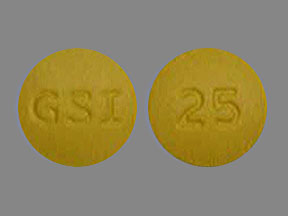Tenofovir alafenamide Interactions
There are 245 drugs known to interact with tenofovir alafenamide, along with 5 disease interactions, and 1 alcohol/food interaction. Of the total drug interactions, 134 are major, 109 are moderate, and 2 are minor.
- View all 245 medications that may interact with tenofovir alafenamide
- View tenofovir alafenamide alcohol/food interactions (1)
- View tenofovir alafenamide disease interactions (5)
Most frequently checked interactions
View interaction reports for tenofovir alafenamide and the medicines listed below.
- Acetylsalicylic Acid (aspirin)
- Adacel (Tdap) (diphtheria toxoid / pertussis, acellular / tetanus toxoid)
- Adderall (amphetamine / dextroamphetamine)
- Augmentin (amoxicillin / clavulanate)
- Benadryl (diphenhydramine)
- Cialis (tadalafil)
- Co-trimoxazole (sulfamethoxazole / trimethoprim)
- Cotrim (sulfamethoxazole / trimethoprim)
- Crestor (rosuvastatin)
- Curcumin 95 (turmeric)
- Ethyl Alcohol (ethanol)
- Garlic Oil (garlic)
- Jardiance (empagliflozin)
- Lantus (insulin glargine)
- Metoprolol Succinate ER (metoprolol)
- MiraLAX (polyethylene glycol 3350)
- Nifedical XL (nifedipine)
- Novolog (insulin aspart)
- Omega-3 (omega-3 polyunsaturated fatty acids)
- Paracetamol (acetaminophen)
- Pulmicort Flexhaler (budesonide)
- Quercetin (bioflavonoids)
- Tecentriq (atezolizumab)
- Tramadol Hydrochloride ER (tramadol)
- Vitamin B12 (cyanocobalamin)
- Vitamin B6 (pyridoxine)
- Vitamin D3 (cholecalciferol)
- Vitamin K1 (phytonadione)
- Zinc (zinc sulfate)
- Zyrtec (cetirizine)
Tenofovir alafenamide alcohol/food interactions
There is 1 alcohol/food interaction with tenofovir alafenamide.
Tenofovir alafenamide disease interactions
There are 5 disease interactions with tenofovir alafenamide which include:
More about tenofovir alafenamide
- tenofovir alafenamide consumer information
- Compare alternatives
- Pricing & coupons
- Reviews (1)
- Side effects
- Dosage information
- During pregnancy
- Drug class: nucleoside reverse transcriptase inhibitors (NRTIs)
Related treatment guides
Drug Interaction Classification
| Highly clinically significant. Avoid combinations; the risk of the interaction outweighs the benefit. | |
| Moderately clinically significant. Usually avoid combinations; use it only under special circumstances. | |
| Minimally clinically significant. Minimize risk; assess risk and consider an alternative drug, take steps to circumvent the interaction risk and/or institute a monitoring plan. | |
| No interaction information available. |
See also:
Further information
Always consult your healthcare provider to ensure the information displayed on this page applies to your personal circumstances.


